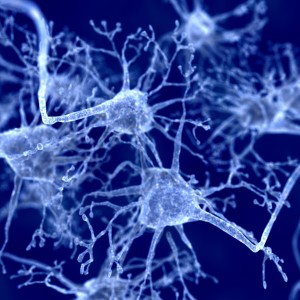Preventing Alzheimer’s and Parkinson’s Diseases with Beer

 Many health practitioners recommend a glass of red wine a day to promote health benefits. But what about beer? A recent study published by researchers at Lanzhou University in China explores the possibility that beer may also promote health. The article, titled “Xanthohumol, a Polyphenol Chalcone Present in Hops, Activating Nrf2 Enzymes to Confer Protection against Oxidative Damage in PC12 Cells,” appeared in the January 28th issue of the Journal of Agricultural and Food Chemistry, published by the American Chemical Society.
Many health practitioners recommend a glass of red wine a day to promote health benefits. But what about beer? A recent study published by researchers at Lanzhou University in China explores the possibility that beer may also promote health. The article, titled “Xanthohumol, a Polyphenol Chalcone Present in Hops, Activating Nrf2 Enzymes to Confer Protection against Oxidative Damage in PC12 Cells,” appeared in the January 28th issue of the Journal of Agricultural and Food Chemistry, published by the American Chemical Society.
The work was led by first author Juan Yao and colleagues. The researchers decided to study the compound xanthohumol (2′,4′,4-trihydroxy-6′-methoxy-3′-prenylchalcone), which comes from the hops that are used to make beer. According to the authors this molecule “has received increasing attention due to its multiple pharmacological activities.” Beer is the primary way that humans become exposed to this compound.
The scientists synthesized xanthohumol in the lab and tested it on some cells grown in a dish, called PC12 cells. These cells act like brain cells (neurons). They wanted to know if xanthohumol had the ability to protect the cells against a common killer known as oxidative-stress. Oxidative stress refers to the production of deadly free-radicals faster than the body can detoxify against them. It is a process that occurs in many disorders of the brain such as Alzheimer’s disease, Parkinson’s disease, and in many other diseases, such as cancer. In cells grown in a dish, xanthohumol has been tested in several studies and it appears to prevent the formation of cancer.
Not only did xanthohumol prevent PC12 cell killing but it also increased the cells’ production of anti-oxidants that could protect them from damage and death. The anti-oxidant molecules included “glutathione, heme oxygenase, NAD(P)H:quinone oxidoreductase, thioredoxin, and thioredoxin reductase.” The key to their production and to cellular protection seemed dependent on activation of a factor called Nrf2. The researchers noted that this ability to induce anti-oxidant production is a previously unrecognized function of the beer-compound.
The authors concluded, “Our results demonstrate that [xanthohumol] is a novel small-molecule activator of Nrf2 in neuronal cells and suggest that [xanthohumol] might be a potential candidate for the prevention of neurodegenerative disorders.” The molecule may protect brain cells, but more studies are needed, first in animal models and then in humans.
Having a daily beer could be as healthy a choice as a glass of red wine, a fact that should make beer-lovers happy as they reach for that glass. In addition, further study of the compound xanthohumol might yield preventative medications, particularly good news for people who may be susceptible to either Alzheimer’s or Parkinson’s diseases.






